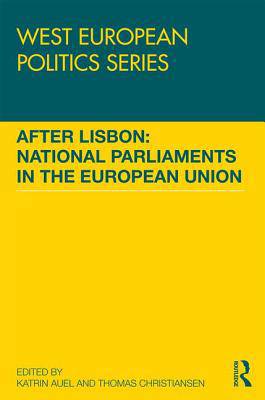
- Retrait gratuit dans votre magasin Club
- 7.000.000 titres dans notre catalogue
- Payer en toute sécurité
- Toujours un magasin près de chez vous
- Retrait gratuit dans votre magasin Club
- 7.000.0000 titres dans notre catalogue
- Payer en toute sécurité
- Toujours un magasin près de chez vous
After Lisbon
National Parliaments in the European Union
Description
The role of national parliaments in EU matters has become an important subject in the debate over the democratic legitimacy of European Union decision-making. Strengthening parliamentary scrutiny and participation rights at both the domestic and the European level is often seen as an effective measure to address the perceived 'democratic deficit' of the EU - the reason for affording them a prominent place in the newly introduced 'Provisions on Democratic Principles' of the Union (in particular Article 12 TEU). Whether this aim can be met, however, depends crucially on the degree to which, and the manner in which, national parliaments actually make use of their institutional rights.
This volume therefore aims at providing a comprehensive overview of the activities of national parliaments in the post-Lisbon Treaty era. This includes the 'classic' scrutiny of EU legislation, but also parliamentary involvement in EU foreign policy, the use of new parliamentary participation rights of the Lisbon Treaty (Early Warning System), their role regarding the EU's response to the Eurozone crisis, and the, so far under-researched, role of parliamentary administrators in scrutiny processes. This book was originally published as a special issue of West European Politics.
Spécifications
Parties prenantes
- Editeur:
Contenu
- Nombre de pages :
- 178
- Langue:
- Anglais
- Collection :
Caractéristiques
- EAN:
- 9781138939363
- Date de parution :
- 21-09-15
- Format:
- Livre relié
- Format numérique:
- Genaaid
- Dimensions :
- 156 mm x 234 mm
- Poids :
- 430 g

Les avis
Nous publions uniquement les avis qui respectent les conditions requises. Consultez nos conditions pour les avis.





